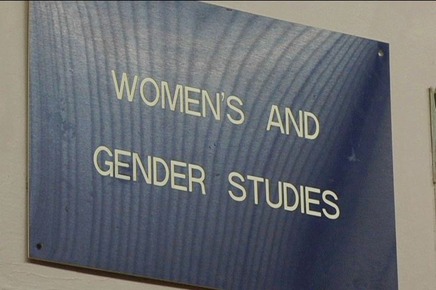
Appel à contributions
Women and Gender Studies. Where Do We Stand ?
Avant le 15 mai
Commission on "Women in Science, Technology, and Medicine ?"
Division of History of Science and Technology of the International Union of History and Philosophy of Science (DHST/IUHPS)
International Symposium
September 14-17 2011
Ecole Normale Supérieure
45 rue d’Ulm, Paris
Introduction :
Research on women in science has long been viewed as interchangeable with studies on gender and science, while covering a wide range of disciplinary fields such as natural, medical, and engineering sciences, as well as social and human sciences. The aim of this biennial Symposium is to compare the different methodological, historiographical, as well as sociopolitical perspectives that have been developed so far ; to unravel creative tensions among the different perspectives ; and to suggest innovative ways for better understanding science, technology, and medicine through the gender perspective.
During the symposium we expect that historians of science, technology, and medicine on the one hand, and scholars of gender in science and technology studies scholars will exchange ideas on key issues related to gender and women in science and technology. In addition, a special session will be dedicated to the legacy of Mme Curie for women in science per the declaration of 2011 as the International Year of Chemistry (IYC-2011) in honor of the 100th anniversary of Mme Curie’s 2nd Nobel Prize in chemistry (1911).
More specifically we wish to focus on the following topics :
Theme 1 - Methodological, epistemological and historiographical issues in women and gender science studies (including micro-history, cultural history, and social history)
The focus here is on the different methods and historiographical approaches that have been used in research on "women in science" versus research on "gender and science". For example, what makes gender issues and women issues different in history of science ? What methodologies could be transferred from history of science to gender studies ? What methodologies could be transferred from gender studies to history of science ? For example, this issue was raised as an emerging and divisive dichotomy by Women, Gender, and Science, (Osiris 12, 1997), while Creative Couples in the Sciences (Rutgers University Press, 1996) addressed such issues as methodologically complementary, rather than signaling an emerging divide between historians and other practitioners of science studies. We now seek to reassess where we stand now and how recent works, often collective, (e.g. Gender and Genres : Lives of Women, 1700-2000, Bologna, 2011) have advanced this argument. To sum up, we wish to reassess what science studies on women and gender have contributed to the history of science and what new issues have emerged in the last decade or so. Have women and gender science studies transformed the history of science ? Does the history of science infuse gender studies with much needed lessons from the past ? How do we best incorporate the development of a new understanding of science and technology with newer visions of gender as closely interrelated areas of activity ?
Theme 2 - The changing concept of gender in science and technology studies
We also wish to explore new nuances and new applications of the concept of gender in studies of science, technology, and medicine as in Never Mind the Gap ! Gendering Science in Transgressive Encounters (Uppsala, 2010) or Gendered Innovations in Science and Engineering (Stanford 2008). In France, the topic has been explored in Sexe et genre. De la hiérarchie entre les sexes (1991, reed. 2002) or Le sexe des sciences. Les Femmes en plus (1993). How do we understand, construct and/or reconstruct femininity and masculinity through our studies of science and technology ? We thus welcome papers that reconceptualize the concept of gender, taking into account our recent knowledge from studies on the fe/male body in culture and medicine, as well as studies of gender in/of technology. (e.g. Special Issue of the Journal of Technology Management & Innovation on ?The Gender Dimension in Technology ?, vol. 5 (1) 2010)
Theme 3 - The role of new sources
As scholars of women in science have demonstrated, traditional histories of science with their focus on sources such as university archives, laboratory records, and professional accounts of science made women invisible in the history of the sciences. Here we wish to emphasize the importance of new, previously under-utilized or innovative sources in making women visible.. Such sources may include both public records such as archives of women ?s organizations and colleges, and private ones, such as diaries, oral histories, and auto/biographies.
Theme 4 - Interdisciplinary approaches on women scientists and gender studies respectively.
We also wish to encourage research on women and gender in science using an interdisciplinary approach. The Symposium will provide opportunities to exchange different experiences and contemplate diverse forms of collaborative work.
Theme 5 - The legacy of Mme Curie at the Centennial of her (2nd) Nobel Prize : Women ?s contributions to radiochemistry, nuclear chemistry, and cancer therapy.
This theme is part of ICY-2011, the International year of Chemistry declared in honor of the Centennial of Mme Curie ?s Nobel Prize in Chemistry.
Call for papers
The Programme Committee welcomes proposals for individual papers or sessions from historians, science and technology studies scholars, women ?s and gender studies researchers. We encourage especially the submission of papers by graduate students and independent scholars. Each participant is allowed to submit only one paper. The committee will consider the submitted proposals and respond by the end of May.
Proposals for individual papers must include :
. A one-page summary (maximum 250 words) outlining both the content and the argument of the proposed paper ;
. A short CV, including current postal and e-mail addresses.
All proposals should be sent via the email to paris.symposium2011@gmail.com until May 15, 2011. All information is also available on the website : http://dhst-women.ntua.gr.
Fichiers de syndication :
Statistiques :
Le site contient 4383 articles
